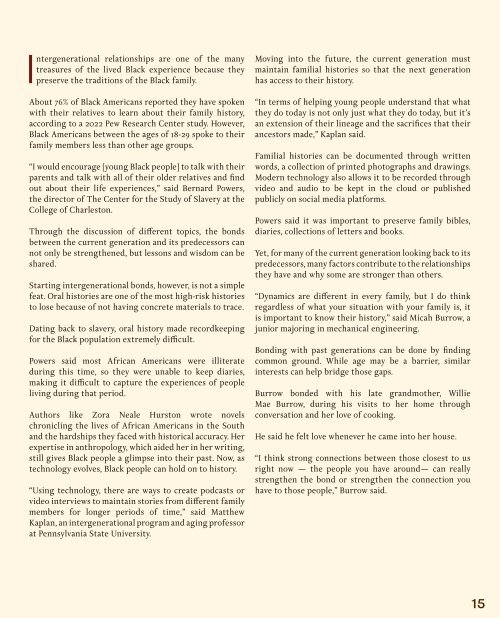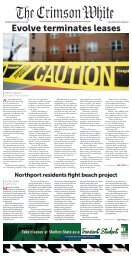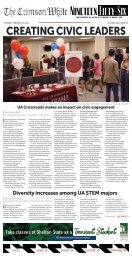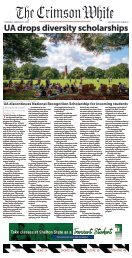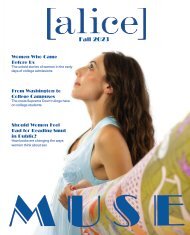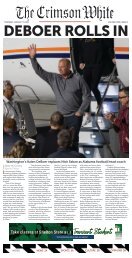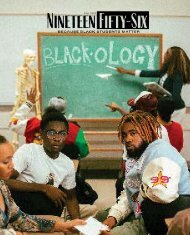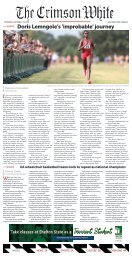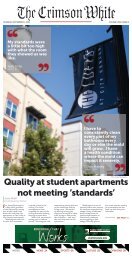Nineteen Fifty-Six Vol.4 Issue 2
Our latest magazine issue, Rooted, delves into the complexities surrounding the black family and the stigmas that often accompany conversations about it. From generational trauma to stereotypes perpetuated by the media, we examine the challenges faced by black families and the resilience and strength that bind them together. However, Rooted also celebrates the beauty and richness of black family life and culture, showcasing the love, unity, and traditions that make these families truly unique. Join us as we explore the multifaceted narratives of the black family and honor their history and heritage.
Our latest magazine issue, Rooted, delves into the complexities surrounding the black family and the stigmas that often accompany conversations about it. From generational trauma to stereotypes perpetuated by the media, we examine the challenges faced by black families and the resilience and strength that bind them together. However, Rooted also celebrates the beauty and richness of black family life and culture, showcasing the love, unity, and traditions that make these families truly unique. Join us as we explore the multifaceted narratives of the black family and honor their history and heritage.
You also want an ePaper? Increase the reach of your titles
YUMPU automatically turns print PDFs into web optimized ePapers that Google loves.
I<br />
ntergenerational relationships are one of the many<br />
treasures of the lived Black experience because they<br />
preserve the traditions of the Black family.<br />
About 76% of Black Americans reported they have spoken<br />
with their relatives to learn about their family history,<br />
according to a 2022 Pew Research Center study. However,<br />
Black Americans between the ages of 18-29 spoke to their<br />
family members less than other age groups.<br />
“I would encourage [young Black people] to talk with their<br />
parents and talk with all of their older relatives and find<br />
out about their life experiences,” said Bernard Powers,<br />
the director of The Center for the Study of Slavery at the<br />
College of Charleston.<br />
Through the discussion of different topics, the bonds<br />
between the current generation and its predecessors can<br />
not only be strengthened, but lessons and wisdom can be<br />
shared.<br />
Starting intergenerational bonds, however, is not a simple<br />
feat. Oral histories are one of the most high-risk histories<br />
to lose because of not having concrete materials to trace.<br />
Dating back to slavery, oral history made recordkeeping<br />
for the Black population extremely difficult.<br />
Powers said most African Americans were illiterate<br />
during this time, so they were unable to keep diaries,<br />
making it difficult to capture the experiences of people<br />
living during that period.<br />
Authors like Zora Neale Hurston wrote novels<br />
chronicling the lives of African Americans in the South<br />
and the hardships they faced with historical accuracy. Her<br />
expertise in anthropology, which aided her in her writing,<br />
still gives Black people a glimpse into their past. Now, as<br />
technology evolves, Black people can hold on to history.<br />
“Using technology, there are ways to create podcasts or<br />
video interviews to maintain stories from different family<br />
members for longer periods of time,” said Matthew<br />
Kaplan, an intergenerational program and aging professor<br />
at Pennsylvania State University.<br />
Moving into the future, the current generation must<br />
maintain familial histories so that the next generation<br />
has access to their history.<br />
“In terms of helping young people understand that what<br />
they do today is not only just what they do today, but it’s<br />
an extension of their lineage and the sacrifices that their<br />
ancestors made,” Kaplan said.<br />
Familial histories can be documented through written<br />
words, a collection of printed photographs and drawings.<br />
Modern technology also allows it to be recorded through<br />
video and audio to be kept in the cloud or published<br />
publicly on social media platforms.<br />
Powers said it was important to preserve family bibles,<br />
diaries, collections of letters and books.<br />
Yet, for many of the current generation looking back to its<br />
predecessors, many factors contribute to the relationships<br />
they have and why some are stronger than others.<br />
“Dynamics are different in every family, but I do think<br />
regardless of what your situation with your family is, it<br />
is important to know their history,” said Micah Burrow, a<br />
junior majoring in mechanical engineering.<br />
Bonding with past generations can be done by finding<br />
common ground. While age may be a barrier, similar<br />
interests can help bridge those gaps.<br />
Burrow bonded with his late grandmother, Willie<br />
Mae Burrow, during his visits to her home through<br />
conversation and her love of cooking.<br />
He said he felt love whenever he came into her house.<br />
“I think strong connections between those closest to us<br />
right now — the people you have around— can really<br />
strengthen the bond or strengthen the connection you<br />
have to those people,” Burrow said.<br />
15


